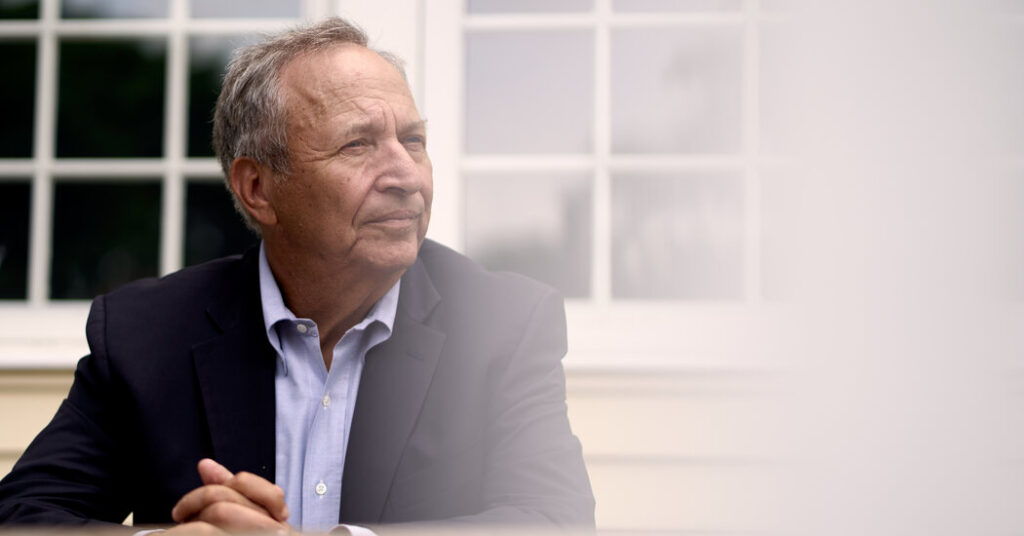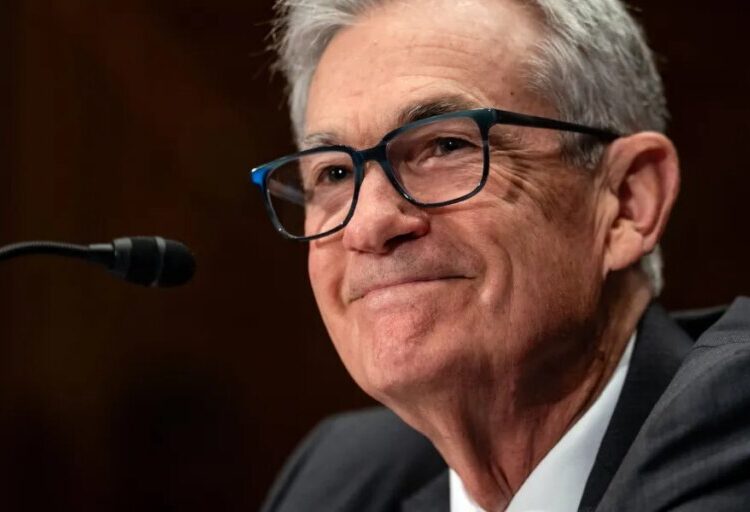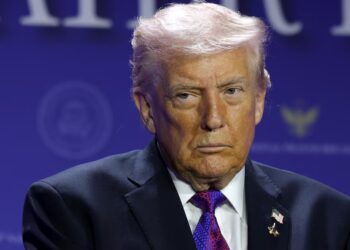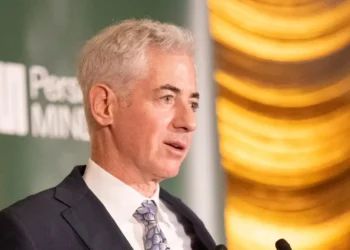Of the many prominent roles Lawrence H. Summers has held over his career in government and Harvard University, the part he has played the longest is omnipresent public intellectual, appearing practically anywhere there is a microphone to deliver confident takes on the economy or global events.
Not even a knack for picking fights and provoking controversy has kept one of the country’s best-known economists from TV screens, newspapers, podcasts, social media and elite forums — perhaps until now.
Embarrassing revelations about his chumminess with a notorious sex offender, the disgraced financier Jeffrey Epstein, could quiet him.
They have, for the moment, cost him his lofty teaching position at Harvard and positions on prominent boards, including the artificial intelligence company, OpenAI. And now, Harvard has said it will review the connections between Mr. Epstein and people at the university that were revealed in thousands of files documenting Mr. Epstein’s communications with others, which Congress released last week.
Even as he steps back, Mr. Summers will remain a tenured professor, which would make efforts to remove him difficult and laborious. And he is among a vast group of powerful men who have faced seemingly career-threatening scandals over comments or actions related to their treatment of women, and yet have maintained a place in public life. This group includes Bill Clinton and President Trump.
But the case with Mr. Epstein, who has been linked to both presidents, could test that trend of public rehabilitation for men facing scandals, because of both the scale and severity of his crimes. The fate of Mr. Summers may offer a clue about how the fallout could touch others as more information about Mr. Epstein’s network comes out.
Even so, Mr. Summers’s sharpest critics are wary of predicting the demise of his public-facing career.
“It’s always premature to say a powerful person is finished in 21st-century America,” said Jeff Hauser, executive director of the Revolving Door Project, a progressive organization that works against corporate influence in politics.
That said, he added, “on a planet of eight billion people, Summers is not a unique source of reliable insight.” Mr. Hauser said he hopes Mr. Summers will quietly “grapple with the privileges he has abused,” while the media world finds new expert voices to elevate.
Brad DeLong, a professor of economics at the University of California, Berkeley, defended Mr. Summers, with whom he has written papers. Mr. DeLong said that his former collaborator built his enormous public profile by “having smart and wise things to say,” adding that he thinks people should still listen to Mr. Summers. “Larry will continue to have worthwhile thoughts.”
Last week, a House committee released a tranche of emails between Mr. Summers and Mr. Epstein, among 20,000 pages of documents received from Mr. Epstein’s estate. In the emails, Mr. Summers appears to be leaning on a trusted friend, confiding to Mr. Epstein that a woman he was interested in had put him in the “rear-view mirror category.”
In a 2019 email, Mr. Summers, who was married at the time, complained about the woman’s involvement with someone else.
“I said what are you up to. She said ‘I’m busy,’” he wrote to Mr. Epstein. “I said awfully coy u are.”
Mr. Epstein wrote back, “shes smart. making you pay for past errors. ignore the daddy im going to go out with the motorcycle guy, you reacted well.”
Mr. Summers declined an interview request through a spokeswoman. But facing a barrage of criticism, he issued a statement on Monday suggesting he was retreating from public life, saying he was “deeply ashamed” and taking “full responsibility for my misguided decision to continue communicating with Mr. Epstein.” He will step back from “public commitments,” he said, to focus on repairing relationships and rebuilding trust.
Mr. Summers made a slight edit when repeating his statement of regret to his students this week, according to online videos, saying he was stepping back from public activities “for a time.” On Wednesday, his spokeswoman said that his co-teachers would take over his coursework and that he did not have any classes to teach next semester.
At Harvard, Mr. Summers is not necessarily a beloved figure — he has often been a critic of his own institution and colleagues. But he has also withstood controversies in the past.
In January 2005, when he was president of Harvard, Mr. Summers made a comment at an academic conference, suggesting that innate differences between the sexes may explain why fewer women are successful in math and science. He apologized and said his ideas had been mischaracterized. The Faculty of Arts and Sciences voted no confidence in him, and Mr. Summers announced his resignation in 2006.
Two years later, though, President-elect Barack Obama named Mr. Summers director of the National Economic Council.
In 2023, The Wall Street Journal reported that Mr. Summers had asked Mr. Epstein in 2014 for advice on raising money for a poetry project run by his wife, Elisa New, who is also a Harvard professor. In response, Mr. Summers said he regretted being in touch with Mr. Epstein after the financier had gone to jail for a sex crime. (The emails released last week show that Ms. New and Mr. Epstein were personally in touch in 2015.)
The latest revelations about his behavior have once again drawn angry reactions among his peers. “Larry Summers’ creepy abuse of his professional power is infuriating,” Jonathan A. Parker, an economist at the Massachusetts Institute of Technology, wrote on X. “Such a record of stupidity from this man.”
Harvard has had a year full of headaches, and the new emails with Mr. Epstein are another one. They put back into the spotlight the university’s extensive ties to Mr. Epstein, after a 2020 Harvard report revealed that the financier had donated more than $9 million to the school before he pleaded guilty to sex crimes involving minors in 2008. The report also said that he most likely had visited Harvard some 40 times after getting out of jail in 2009. Mr. Epstein died in his jail cell in 2019, in what was ruled as a suicide.
Harvard faced intensifying calls to take action against Mr. Summers this week. Senator Elizabeth Warren, a Massachusetts Democrat, has urged the university to cut ties with him.
After a video posted of Mr. Summers teaching a class Tuesday, Alejandra Caraballo, a clinical instructor at Harvard Law School’s Cyberlaw Clinic, commented online that “it’s not normal for a professor to start a class discussing how they ‘regret’ being best buddies with a child sex trafficker.”
Todd Wolfson, the president of the American Association of University Professors, said universities have often proved they could force people from campuses even without criminal convictions. In the past year, many professors have lost their jobs or positions inside schools, including over speech seen as offensive, but often the cases involved instructors without tenure protections.
“Where there’s a will, there’s a way,” Dr. Wolfson said, adding, “Right now, there’s no way to justify having Larry Summers around students.”
But Harvard policy suggests that ousting Mr. Summers could be an ordeal. The provost’s office says on its website that professors can be stripped of their appointments “only for grave misconduct or neglect of duty” by the Harvard Corporation, the university’s highest governing board.
In May, however, a business professor lost tenure and left the university after being accused of falsifying data for her academic papers. That professor denied the claims.
This week, Mr. Summers withdrew from a number of associations, including with the think tanks Center for American Progress and the Center for Global Development. He resigned from the board of OpenAI, his spokeswoman confirmed, and The New York Times Opinion section said in a statement that it would not renew Mr. Summers’s contract as a contributing writer.
If Mr. Summers is eyeing a future comeback to public life, his initial steps have sent the right messages, said Justine Griffin, a principal at Rasky Partners, a communication and public relations firm in Boston, and a specialist in crisis and reputation management.
“His statement was good — he took accountability, which many do not,” Ms. Griffin said in an email. “And then described what he intended to do — ‘step back from public commitments.’ That was smart and also necessary because each one of the organizations associated with him would likely have sought to/found it necessary to cut ties.”
She said rebuilding a reputation after a scandal often requires lying low, at least for a while, and doing selfless work, such as philanthropy.
Whether another comeback is possible for Mr. Summers and others connected to Mr. Epstein is unclear. The Epstein case has rocked American politics, and additional revelations are likely to come out: This week, the Senate approved, and Mr. Trump signed, a bill to release more evidence collected against Mr. Epstein.
Alan Blinder contributed reporting.
The post Lawrence Summers Has Come Back From Scandals. Will This Be His Last? appeared first on New York Times.




